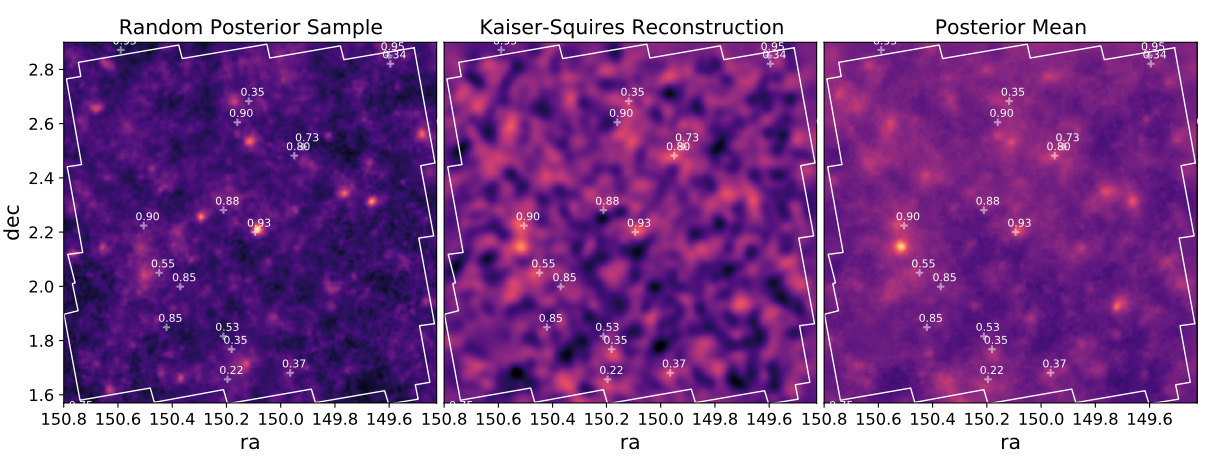
The Dark Matter present in the Large-Scale Structure of the Universe is invisible, but its presence can be inferred through the small gravitational lensing effect it has on the images of far away galaxies. By measuring this lensing effect on a large number of galaxies it is possible to reconstruct maps of the Dark Matter distribution on the sky. This, however, represents an extremely challenging inverse problem due to missing data and noise dominated measurements. In this work, we present a novel methodology for addressing such inverse problems by combining elements of Bayesian statistics, analytic physical theory, and a recent class of Deep Generative Models based on Neural Score Matching. This approach allows to do the following: (1) make full use of analytic cosmological theory to constrain the 2pt statistics of the solution, (2) learn from cosmological simulations any differences between this analytic prior and full simulations, and (3) obtain samples from the full Bayesian posterior of the problem for robust Uncertainty Quantification. We present an application of this methodology on the first deep-learning-assisted Dark Matter map reconstruction of the Hubble Space Telescope COSMOS field.
Reference: Benjamin Remy, François Lanusse, Zaccharie Ramzi, Jia Liu, Niall Jeffrey and Jean-Luc Starck. “Probabilistic Mapping of Dark Matter by Neural Score Matching”, Machine Learning and the Physical Sciences Workshop, NeurIPS 2020.




